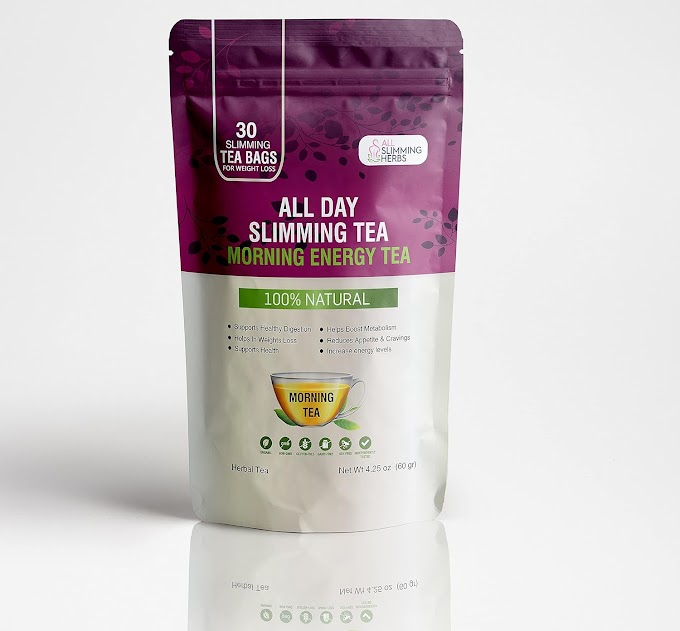Weight loss is a common goal for many people, particularly as increasingly sedentary lifestyles and calorie-dense foods can make it challenging to maintain a healthy weight. According to the Centers for Disease Control and Prevention (CDC), successful weight loss involves adopting a lifestyle that includes eating nutrient-dense foods, engaging in regular physical activity, and managing stress. Despite these recommendations, many individuals seek additional support through weight loss supplements.
However, high-quality clinical research needs to support many over-the-counter weight loss supplements. They may be ineffective or unsafe, as highlighted in a 2022 AMA Journal of Ethics review.
Fortunately, besides a balanced diet and regular exercise, certain vitamins and nutrients may support healthy weight loss when used as supplements. Here’s what you should know.
What Are Weight Loss Supplements?
Weight loss supplements are usually pills, powders, or liquids that are added to your diet to aid weight loss. They may claim to work by improving carbohydrate metabolism, increasing fat-burning or energy expenditure, and reducing hunger feelings.
Some weight loss supplements help indirectly by claiming to support energy and health levels and ward off some common effects of dieting, such as potential nutrient deficiencies, fatigue, and cravings.
Remember over-the-counter weight loss supplements are not the same as prescription medication designed to treat people with obesity, known as anti-obesity medications. These pills can be part of the treatment plan for obesity, Medicine Association, Notes the Obesity, and their safety And efficacy are backed by randomized, clinical trials.
Are weight loss supplements regulated by the FDA?
Over-the-counter weight loss supplements are not classified as drugs by the Food and Drug Administration (FDA) and do not need prior review or approval from the agency. Instead, it is up to the manufacturers of these supplements to guarantee that their products are safe and that their claims are accurate and not deceptive.
Dr. Adarsh Gupta, director of the Valley Forge Weight Management Center in Norristown, Pennsylvania, emphasizes caution when using weight loss supplements, encompassing over-the-counter medications, herbs, and various products that promise weight loss. He states, "Everyone must realize that these supplements are not FDA-approved. The only limitation is that they cannot assert they can cure any disease."
Are weight loss supplements effective?
A 2020 review published in *Nutrients* highlights that while there have been studies examining the effectiveness of weight loss supplements, most of them are of poor quality. The National Institutes of Health’s Office on Dietary Supplements also points out the lack of robust research on the efficacy of over-the-counter weight loss products, noting that much of the available research is derived from limited animal studies rather than human clinical trials.
The organization states on its website, “In nearly all cases, further research is needed to thoroughly assess the safety and/or effectiveness of specific ingredients, and some may even interact negatively with certain medications.”
Dr. Gupta stresses that establishing and maintaining a healthy lifestyle should be the foundation of any weight loss plan. He states, “Sustainable weight loss cannot be achieved without replacing bad habits with healthy ones.” He also emphasizes that dieting should not follow a 'one-size-fits-all' model; it should be tailored to each person's daily routine, eating habits, and food preferences.
Top Weight Loss Supplements In 2024
Numerous vitamins and minerals contribute to maintaining a healthy weight. You can obtain all the essential vitamins, minerals, and nutrients when you consume a balanced and nutritious diet.
“Yet, in our fast-paced lives, many individuals tend to eat the same types of food repeatedly, leading to a lack of well-rounded nutrition,” explains Dr. Gupta.
Experts recommend focusing on the following key aspects.
Magnesium
Magnesium is another essential nutrient that supports healthy weight management, according to Ashley Kitchens, owner and registered dietitian nutritionist at Plant Centered Nutrition in Durham, North Carolina. “A lack of magnesium can impair your body’s ability to use sugar (glucose) for energy,” she explains.
A systematic review published in Critical Reviews in Food Science and Nutrition found that magnesium supplementation was associated with a decrease in body mass index (BMI) and reductions in body weight and waist circumference in specific groups, including individuals with insulin resistance, hypertension, obesity, and magnesium deficiency.
Many adults in the U.S. do not meet the recommended intake of magnesium from their diet, as noted by the National Institutes of Health. “If you’re deficient in one nutrient, it can impact your levels of others,” Kitchens states. “For instance, low magnesium may hinder vitamin D’s effectiveness.” Additionally, magnesium is crucial for protein synthesis and energy production. It’s advisable to consult your doctor to see if magnesium supplementation could be beneficial for you.
Protein Powder
Protein aids in weight loss in several ways: it increases calorie expenditure during digestion, keeps you feeling full longer, and supports the development of metabolically active lean muscle. “Since proteins are complex, your body takes longer to break them down,” explains Kitchens. This means your body expends more energy processing protein compared to fats or carbohydrates. By boosting the proportion of protein in your diet, you might experience a slight increase in daily calorie burn.
Protein shakes can also assist with weight loss by reducing hunger and promoting satiety. “Adding protein to every meal and snack can help you feel fuller and more satisfied,” Kitchens notes.
Additionally, lean muscle mass burns more calories than fat mass, so in addition to strength training, it's important to consume enough nutrients to support muscle growth, which can help you burn calories even when at rest.
“If you find it challenging to get enough protein through food alone, using a protein powder can be beneficial for nourishing your muscles and maintaining that metabolically active lean muscle mass,” says Walsh.
Multivitamins
For the general population, registered dietitian Maryann Walsh, owner of Nutrition Counseling in Palm Beach, Florida, suggests taking a high-quality multivitamin to ensure you're getting essential minerals.
“A multivitamin usually includes B vitamins, which are vital for energy metabolism,” says Walsh.
She specifically recommends looking for a multivitamin that contains iron. “Iron is essential for transporting oxygen to our cells, many of which play a key role in helping us feel our best and supporting various metabolic processes, including the development of lean muscle mass,” she explains. Walsh recommends Nature Made Multivitamin with Iron and Centrum Multivitamin and Multimineral as excellent options.
B Vitamins
B vitamins can help maintain a healthy weight because of their involvement in energy production. “Vitamin B3 (niacin) is particularly important for aiding the body in breaking down carbohydrates and transforming them into energy,” notes Kitchens.
Some studies indicate a connection between low vitamin B12 levels and increased weight or obesity, although other research presents conflicting results. It’s worth noting that high doses of vitamin B3 and B1 have also been associated with insulin resistance, so it's important to be mindful of your intake and consult your doctor before making any changes.
Fiber
Fiber offers a range of health benefits, including aiding in weight management. “Aiming for 30 grams of fiber daily can assist with weight loss and enhance your body’s insulin response,” explains Kitchens. “This approach can be as effective as trendy, restrictive diets that limit specific foods or impose strict guidelines,” she adds.
Fiber can help you feel fuller for a longer period, making it easier to avoid snacking—and the extra calories that come with it. While fiber is found in various foods, you can also consider using a fiber supplement.
Diet And Exercise Vs. Weight Loss Supplements
Experts agree that safe weight loss involves making lifestyle changes such as adopting a healthy diet, cutting daily calorie intake, and increasing physical activity, which can lead to sustainable long-term results. The CDC notes that individuals who lose weight gradually, at a rate of one to two pounds per week, are more likely to keep the weight off compared to those who lose it more rapidly.
For those aiming to shed pounds, the National Heart, Lung, and Blood Institute (NHLBI) recommends reducing daily caloric intake by 500 to 1,000 calories and cutting back on dietary fats and carbohydrates to create a calorie deficit. They also emphasize that combining a lower-calorie diet with more physical activity can result in reductions in belly fat and improvements in heart health.
Eating a balanced diet rich in whole foods—such as fruits, vegetables, proteins, and whole grains—can help ensure you get all the essential vitamins and minerals needed for maintaining a healthy weight. However, if you find it challenging to stick to a well-rounded eating plan, considering supplements for nutrients like protein, fiber, magnesium, and B vitamins may be beneficial for supporting healthy weight management.
Meditation Vs. Weight Loss Supplements
The latest weight loss medications available, known as glucagon-like peptide-1 (GLP-1) receptor agonists, such as Wegovy and Ozempic, can aid in weight loss by decreasing appetite and promoting feelings of fullness. However, only Wegovy has received FDA approval for the treatment of overweight and obesity in individuals with a BMI of 30 or higher, or 27 and above for those with weight-related health issues like high blood pressure or type 2 diabetes. On the other hand, Ozempic is FDA-approved for managing blood sugar levels in people with type 2 diabetes.
Other FDA-approved medications for weight loss in individuals with obesity or being overweight include:
- Orlistat
- Phentermine-topiramate
- Liraglutide
- Setmelanotide
These medications are generally recommended alongside dietary and exercise interventions to support and sustain weight loss.
In contrast, dietary supplements that claim to aid weight loss are not regulated by the FDA in the same way as medications. This means they do not undergo FDA review or approval before being marketed to consumers. According to the National Institutes of Health Office of Dietary Supplements, these supplements can contain ingredients that might be harmful or interact negatively with certain medications.
If you’re interested in a specific medication or thinking about incorporating a weight loss supplement into your routine, it’s important to consult your healthcare provider. They can help you assess whether these treatments are appropriate for you and discuss their potential benefits and risks.
When To See a Doctor
If you’ve adopted healthy lifestyle habits but aren’t achieving the weight loss results you desire, it's important to speak with your doctor or a registered dietitian before starting any weight loss program, plan, or diet. They can assist you in creating a treatment plan that is both safe and effective for your needs.
In some cases, prescription anti-obesity medications may be recommended as a supplementary treatment for individuals with excess weight or obesity, provided specific criteria are met based on your health and body composition.







